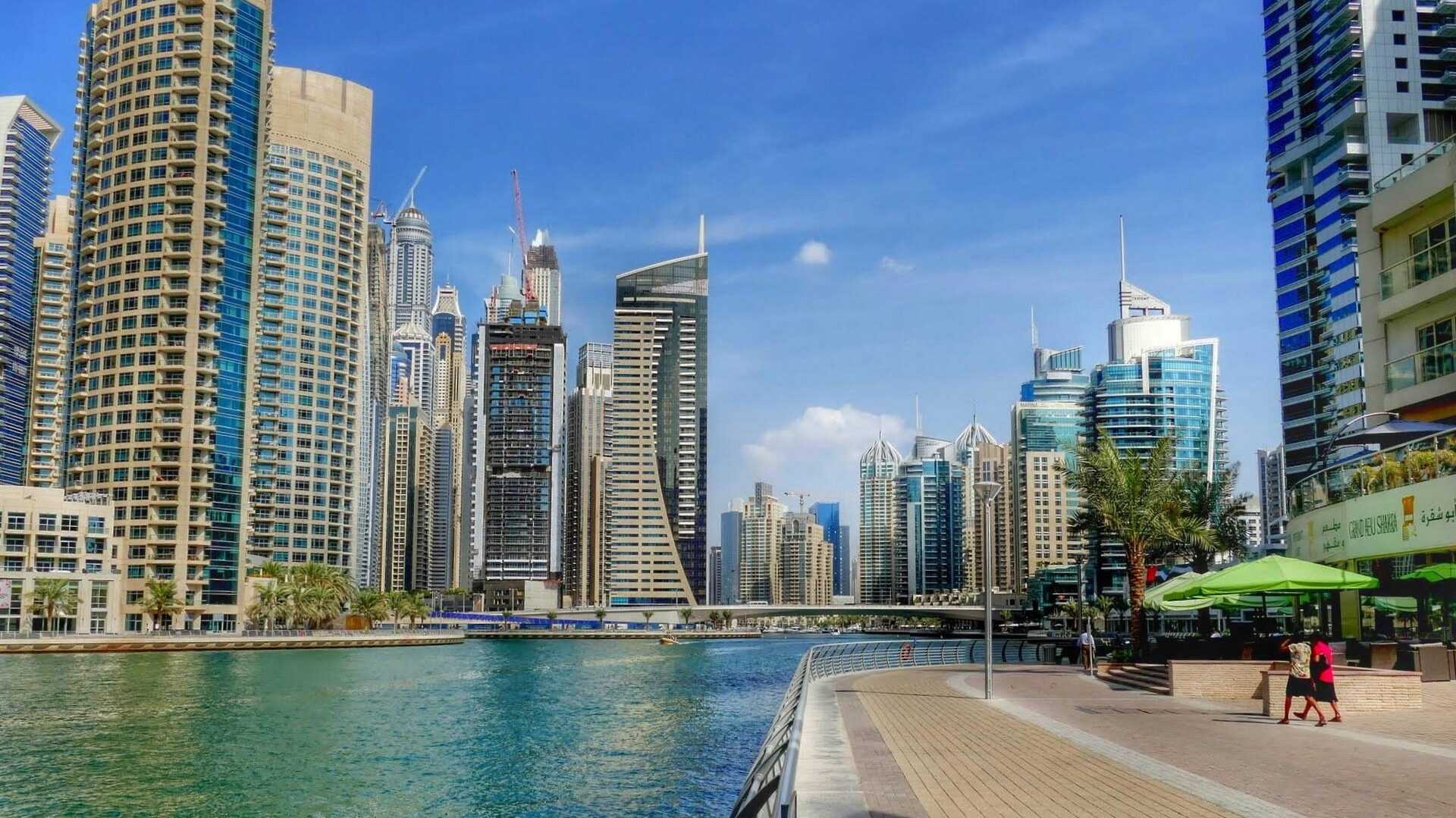
Types of taxes in the UAE


The introduction of the UAE tax system can be an amazing discovery for many foreigners and businessmen. The UAE has a unique tax policy that offers many benefits for residents and businesses. In this article, we will take a detailed look at the main taxes in the UAE, including VAT, property taxes and corporate taxes. We will also look at the tax benefits available in the UAE's free economic zones and discuss how to avoid double taxation. At the end of the article, you will find real-world examples of tax planning in the UAE and a comparison of the UAE's tax systems with other popular countries for business and life.
UAE Tax policy
The UAE is known for its attractive tax policies. The main advantage is the absence of direct taxation for individuals and most companies. However, there are exceptions, such as companies from the oil and gas industry and branches of foreign banks, which are subject to corporate income tax.
The UAE has concluded double taxation agreements with more than 70 countries. These agreements allow UAE residents to avoid paying taxes on income earned abroad in their country of residence.
An example of the application of double taxation treaties may be the situation when a resident UAE gets a return on investment in the shares of a foreign company. Thanks to the agreement, he can avoid paying tax on income from such investments in the country where the company is located.
Let's assume that you are a business owner in the UAE and earn income from selling goods or services. In this case, you are not required to pay corporate income tax, which makes the UAE an attractive place to do business.
Exemption of individuals from taxes
Individuals in the UAE are exempt from paying taxes, including personal income tax (PIT). This makes the UAE an attractive place for foreign professionals to work and live.
The UAE's free economic zones offer a number of tax incentives for companies registered in them. These benefits include full corporate tax exemption, no income tax on the sale of assets and shares, and no import and export duties.
Despite the fact that there is no personal income tax in the UAE, which makes the country attractive for foreign workers. However, foreigners working in the UAE should check the tax laws of their home country, as some countries require taxes to be paid on income earned abroad.
Taxes for legal entities
Legal entities in the UAE are subject to corporate income tax, but only if they are registered in the oil and gas industry or are branches of foreign banks. All other companies, including those registered in free economic zones, are exempt from this tax.
Dubai also has a value-added tax (VAT), which was introduced in 2018 and is 5%. This tax applies to most goods and services. However, there are some exceptions, including basic foodstuffs, health care, and education, which are exempt from VAT.
It is important to note that there is no corporate income tax in Dubai, which makes it an attractive place to do business. There are also no other types of taxes, such as property tax, dividend tax, and capital gains tax.
In addition, Dubai has special tax incentives for companies registered in free economic zones. This includes a 100% exemption from corporate and import taxes for up to 50 years.
Overall, Dubai's tax system is one of the most liberal in the world, which attracts many foreign investors and entrepreneurs.
VAT RATE
Bet VAT in UAE is 5%. This is quite a low rate, especially compared to European countries, where the VAT rate can reach 20-25%. VAT in the UAE applies to all goods and services, except for some categories that are exempt from this tax.
The UAE VAT exemption applies to basic food products, certain medical services, and educational services. This is done in order to reduce the financial burden on the population in relation to these key needs.
It is also worth noting that the export of goods from the UAE is exempt from VAT. This means that if goods or services are exported outside the country, they are not subject to this tax. This encourages export operations and helps maintain the competitiveness of local companies in the international market.
At the same time, the import of goods to the UAE is subject to VAT, except in cases where the goods are imported into free economic zones. This means that companies registered in these zones can import goods without paying VAT.
In general, VAT in the UAE is applied fairly and takes into account social and economic factors, which helps to maintain the stability and economic growth of the country.
Features of registration for VAT
Companies that are required to pay VAT in the UAE must register with the Federal Tax Office. This process involves submitting an application and submitting some documents, including company registration documents, bank account details, and business information.
To register for VAT, a company must have a turnover of at least$ 100,100 per year. If the company's turnover is between $ 51,051 and $ 100,100, registration of a VAT taxpayer is voluntary.
At the time of registration, companies must provide proof that their turnover will reach the established threshold within the next 30 days. This can be a contract for the supply of goods or services that confirms that the company's turnover will exceed the minimum threshold.
After successful registration, the company receives a unique VAT taxpayer number, which must be indicated on all VAT-related invoices and documents.
It is important to note that failure to comply with the requirements for registration and payment of VAT can lead to serious fines and penalties. Therefore, companies are advised to contact professional tax consultants for assistance in registering and paying VAT.
Property and car taxes
Real estate in the UAE it is subject to real estate tax, which is paid at the time of purchase and annually in the form of a municipal fee. The property tax rate varies depending on the emirate and property type. As for cars, when buying a car in the UAE, you must pay a registration fee. The amount of the fee depends on the type of car and its cost. Unlike many other countries, the UAE does not have an annual car ownership tax.
The UAE offers a number of advantages for investors and entrepreneurs, including a stable economy, a strategic geographical location, modern infrastructure and an attractive tax policy. In addition, investors and entrepreneurs can benefit from a number of tax benefits offered by free economic zones.
Free economic zones in the UAE offer a number of tax benefits for companies registered in them. These benefits include full exemption from corporate income tax, no income tax on the sale of assets and shares, and no import and export duties.
Excise taxes
In the UAE, there is an excise tax on certain categories of goods that are considered harmful to health. This includes tobacco products, energy drinks, and sugary sodas. The excise tax rate varies from 50% to 100%, depending on the type of product.
Tobacco products and energy drinks are subject to an excise tax of 100%, while sugary carbonated drinks are subject to an excise tax of 50%. This tax was introduced in order to reduce the consumption of these goods and improve public health.
Excise tax in the UAE is levied at the stage of production or import of goods. This means that producers or importers of these goods are required to pay an excise tax before the goods are released to the market.
Companies that produce or import excisable goods must register with the UAE Federal Tax Office. As in the case of VAT, failure to comply with the requirements for registration and payment of excise tax may result in fines and penalties.
It is important to note that excise tax in the UAE is an indirect tax, which means that its cost is ultimately passed on to consumers through an increase in the retail price of goods. This makes the excise tax an effective tool for regulating the consumption of certain goods.
Tax obligations of tourists
Tourists visiting the UAE are also subject to certain tax obligations. In particular, they are required to pay a tourist tax, which is included in the price of their stay at the hotel. In addition, they must pay VAT on most of their purchases.
The tourist tax, also known as the "hotel tax", varies depending on the hotel class and ranges from 7 to 10% of the room rate. This tax is automatically included in the invoice and paid at check-out.
As for VAT, as mentioned, its rate is 5% and it is included in the price of most goods and services. However, tourists can take advantage of the system VAT refund when they leave the country. This means that they can get a refund of the VAT they paid on purchases made during their stay in the UAE.

To receive a VAT refund, tourists must present receipts from their purchases at special VAT refund points, which are usually located at airports. The refund amount depends on the total purchase price and can be up to 85% of the VAT paid.
In general, the tax obligations of tourists in the UAE are quite simple and transparent, which makes the process of shopping and living in the country convenient.
Examples of taxes in hotels and restaurants
Various taxes and charges apply to hotels and restaurants in the UAE. For example, in Dubai, a municipal fee of 7%, a tourist fee ($3-6 per night, depending on the hotel class) and VAT of 5% are added to the cost of a hotel room. In restaurants, a service fee (usually 10%) and 5% VAT are added to the bill. This fee is intended to finance the development of tourist infrastructure and services in the city.
In addition to the service fee and VAT, restaurants may charge a service fee of 10%. However, in some establishments, this fee may be included in the price of meals, so it is recommended to check this information before ordering.
It is important to note that all these taxes and fees are automatically added to your account, so the final amount that you will see on your invoice will include all taxes and fees.
Overall, while taxes and fees in the UAE may seem complicated, they are fairly standard and comparable to those charged at hotels and restaurants in many other countries.
How to become a tax resident in the UAE
You can become a tax resident of the UAE by obtaining a resident visa. This entitles you to reside in the country for an extended period of time and to work in the UAE. To obtain a resident visa, a number of requirements must be met, including having an employer in the UAE or own business.
A resident visa is usually issued for a period of two to three years and can be extended. There are various types of resident visas, including an employee visa, an investor visa, and a student visa.
An employee visa usually requires a sponsor employer in the UAE. The employer usually takes care of the process of obtaining a visa and paying the corresponding fees.

The investor visa is intended for those who want to start a business in the UAE. This visa requires an investment in the country's economy, the size of which varies depending on the specific country and type of business.
A student visa is granted to those who study at an educational institution in the UAE. This visa usually requires confirmation from the educational institution.
Once you obtain a resident visa, you become a tax resident of the UAE and can enjoy all the benefits of this status, including exemption from personal income tax and the ability to bank account opening.
Process and requirements
- Submitting an application: The first step in the process of obtaining a resident visa is to submit an application. This can be done through a specialized agency or directly through the UAE immigration authorities.
- Submission of documents: You will need to provide a number of documents, including a valid passport, photos, a criminal record certificate, and, in some cases, a medical certificate. If you plan to work in the UAE, you will also need to provide documents from your employer.
- Medical examination: All applicants for a resident visa must pass a medical examination, including a test for HIV and tuberculosis.
- Employer or business in the UAE: To obtain a resident visa, you need to have an employer in the UAE who is willing to sponsor you, or your own business in the country. Investors must provide proof of their investment.
- Family member sponsorship: If you do not work or own a business, but you have a family member who is already a resident of the UAE, they can act as your sponsor.
- Payment of fees: After submitting your application and submitting all the necessary documents, you will be required to pay a fee for reviewing the application and issuing a visa.
- Getting a visa: If your application is approved, you will receive a resident visa, which will be placed in your passport. The visa is valid for two to three years and can be extended.
- Spending time in the UAE: To maintain your tax resident status, you will need to spend at least 183 days a year in the UAE.
- Registration with the Federal Tax Administration: After obtaining a resident visa, you will need to register with the UAE Federal Tax Office. This is mandatory for all tax residents.
- Opening a bank account: Tax resident status entitles you to open a bank account in the UAE. You will need to provide documents confirming your tax resident status, as well as other documents, depending on the requirements of a particular bank.
- Compliance with tax obligations: Finally, as a tax resident of the UAE, you are required to comply with all tax obligations established by UAE law. This includes paying all applicable taxes, such as VAT and excise tax, and submitting the required tax returns.
It is important to note that the process of obtaining tax residency in the UAE can be complex and time-consuming. Therefore, it is recommended to contact a professional immigration consultant or lawyer who will help you collect all the necessary documents, apply and go through all the stages of the process.
Advantages of tax residency
Tax residency in the UAE offers a number of benefits, including no personal income tax, the ability to own property and run a business, and access to high-quality healthcare and education services. In addition, tax residents of the UAE can avoid double taxation, thanks to the double taxation agreements concluded by the UAE with many countries.
The UAE has concluded double taxation agreements with more than 70 countries. These agreements allow UAE residents to avoid paying taxes on income earned abroad in their country of residence.
An example of the application of a double taxation agreement is when a resident of the United Arab Emirates receives income from investments in shares of a Russian company. Due to the agreement between the UAE and Russia, this income is not subject to taxation in Russia.

Let's say you are an entrepreneur from the UK and have decided to move to Dubai to do business. Thanks to the double taxation agreement between the United Arab Emirates and the United Kingdom, you will be able to avoid paying taxes on income from your business in the United Kingdom as long as you are a tax resident of the United Arab Emirates.
Comparing the tax system of the UAE with the tax systems of other popular countries for business and life, we can note a number of advantages of the UAE. First, there is no personal income tax in the UAE, which makes it attractive for entrepreneurs and professionals. Secondly, the UAE offers a number of tax incentives for companies registered in free economic zones. Third, the UAE has concluded double taxation agreements with more than 70 countries.
Conclusion
In general, the UAE tax system offers a number of advantages for individuals and legal entities. The absence of personal income tax, attractive business conditions and the ability to avoid double taxation make the UAE one of the most attractive places to live and work.
In Dubai, the main types of taxes are VAT (value added tax), corporate tax for certain industries, property taxes, excise taxes on certain categories of goods and tourist tax.
No, there is no personal income tax in Dubai, which makes it an attractive place to work and live for foreign professionals.
Most foreign companies in Dubai are exempt from corporate tax. Exceptions include companies in the oil and gas industry and branches of foreign banks.
The VAT rate in Dubai is 5% and applies to many goods and services, with the exception of some exempt categories, such as basic food products and certain medical and educational services.
Yes, there is a property tax in Dubai, which is paid at the time of purchase and annually in the form of a municipal fee.
In Dubai, an excise tax is levied on tobacco products, energy drinks and sugary sodas. The rate varies from 50% to 100%, depending on the product category.
Tourists in Dubai are required to pay the tourist tax included in the hotel price and VAT for purchases. Tourists can use the VAT refund system when leaving the country.
To become a tax resident of Dubai, you must obtain a resident visa, which gives you the right to live and work in the UAE. To do this, you need to meet certain requirements, including the presence of an employer in the UAE or your own business.
Yes, foreign investors can take advantage of the tax benefits offered in free economic zones, including full exemption from corporate income tax.
Yes, the UAE has concluded double taxation agreements with more than 70 countries, which allows UAE residents to avoid paying taxes on income earned abroad.
What are the main types of taxes in Dubai?
In Dubai, the main types of taxes are VAT (value added tax), corporate tax for certain industries, property taxes, excise taxes on certain categories of goods and tourist tax.
Is there a personal income tax imposed in Dubai?
No, there is no personal income tax in Dubai, which makes it an attractive place to work and live for foreign professionals.
Are foreign companies subject to corporate tax in Dubai?
Most foreign companies in Dubai are exempt from corporate tax. Exceptions include companies in the oil and gas industry and branches of foreign banks.
What is the VAT rate in Dubai?
The VAT rate in Dubai is 5% and applies to many goods and services, with the exception of some exempt categories, such as basic food products and certain medical and educational services.
Is there a property tax in Dubai?
Yes, there is a property tax in Dubai, which is paid at the time of purchase and annually in the form of a municipal fee.
What excise taxes are there in Dubai?
In Dubai, an excise tax is levied on tobacco products, energy drinks and sugary sodas. The rate varies from 50% to 100%, depending on the product category.
What are the tax obligations of tourists in Dubai?
Tourists in Dubai are required to pay the tourist tax included in the hotel price and VAT for purchases. Tourists can use the VAT refund system when leaving the country.
How to become a Dubai tax resident?
To become a tax resident of Dubai, you must obtain a resident visa, which gives you the right to live and work in the UAE. To do this, you need to meet certain requirements, including the presence of an employer in the UAE or your own business.
Does Dubai provide tax incentives for foreign investors?
Yes, foreign investors can take advantage of the tax benefits offered in free economic zones, including full exemption from corporate income tax.
Are there any double taxation agreements in Dubai?
Yes, the UAE has concluded double taxation agreements with more than 70 countries, which allows UAE residents to avoid paying taxes on income earned abroad.




























